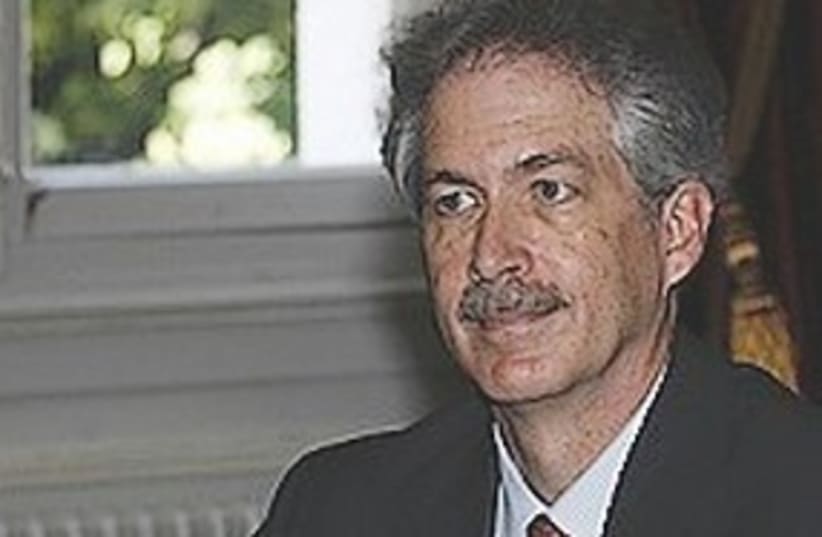RELATED:Iran: Finished loading fuel into Bushehr nuke reactorEditor's Notes: Running out of time“I’d like to know why we haven’t sanctioned any of the Chinese companies engaged in clearly sanctionable actions,” said HFAC Chairman Howard Berman (D–California).“I’m concerned that we will not be able to sustain a robust sanctions regime if we don’t impose sanctions in an even-handed manner… What kind of message do we send if we fail to sanction companies that are transparently engaged in sanctionable activities?” Committee Ranking Member Ileana Ros-Lehtinen (R–Florida), who is due to become chair in the next session, charged that “since the 1990s, US and international efforts to stop the growing Iranian threat have been half-hearted at best, with results to match. The problem is not that a tough approach has failed, but that it has yet to be fully tried,” since sanctions haven’t been fully implemented.She also pointed to China and its investment and trade with Iran, declaring, “We’ve wasted enough time – 14 years. No more waivers, exceptions, excuses.”Burns and Levey, however, defended their approach and said that it’s having a positive effect.“We are enforcing the law rigorously and energetically.Already, more foreign investment has been curbed than at any time [in the last 15 years],” Burns said. “The net result of all of the measures that we’ve applied in recent months is substantial.”He pointed to a lost of $50b. to $60b. in energy sector investment for Iran as well as an 85% reduction in the amount of refined petroleum imports to Iran.And Iran is increasingly “relegated to the margins of the international financial system,” according to Levey.Both officials stressed, however, that the door to diplomacy remains open and that US sanctions policy is being conducted to an eye to having Iran return to the negotiating table.The US has seen the sanctions as being effective on that score, as Iran has agreed to meet with the US and other world powers in Geneva on December 6 and 7 for the first time in a year.The US officials said the sanctions policy has received widespread buy-in from other countries and that even China has taken note of the risks in doing business with Teheran.Levey said banks there take seriously the “reputational” concerns that come from working with Iran, as they want to be an international economic force.On Tuesday, the US designated 10 more companies that have ties to a major Iranian shipping line and bank.
Members of Congress call for Iran sanction enforcement
Lawmakers say "efforts to stop the Iranian threat have been half-hearted at best;" Obama officials say investment, oil trade to Iran way down.

RELATED:Iran: Finished loading fuel into Bushehr nuke reactorEditor's Notes: Running out of time“I’d like to know why we haven’t sanctioned any of the Chinese companies engaged in clearly sanctionable actions,” said HFAC Chairman Howard Berman (D–California).“I’m concerned that we will not be able to sustain a robust sanctions regime if we don’t impose sanctions in an even-handed manner… What kind of message do we send if we fail to sanction companies that are transparently engaged in sanctionable activities?” Committee Ranking Member Ileana Ros-Lehtinen (R–Florida), who is due to become chair in the next session, charged that “since the 1990s, US and international efforts to stop the growing Iranian threat have been half-hearted at best, with results to match. The problem is not that a tough approach has failed, but that it has yet to be fully tried,” since sanctions haven’t been fully implemented.She also pointed to China and its investment and trade with Iran, declaring, “We’ve wasted enough time – 14 years. No more waivers, exceptions, excuses.”Burns and Levey, however, defended their approach and said that it’s having a positive effect.“We are enforcing the law rigorously and energetically.Already, more foreign investment has been curbed than at any time [in the last 15 years],” Burns said. “The net result of all of the measures that we’ve applied in recent months is substantial.”He pointed to a lost of $50b. to $60b. in energy sector investment for Iran as well as an 85% reduction in the amount of refined petroleum imports to Iran.And Iran is increasingly “relegated to the margins of the international financial system,” according to Levey.Both officials stressed, however, that the door to diplomacy remains open and that US sanctions policy is being conducted to an eye to having Iran return to the negotiating table.The US has seen the sanctions as being effective on that score, as Iran has agreed to meet with the US and other world powers in Geneva on December 6 and 7 for the first time in a year.The US officials said the sanctions policy has received widespread buy-in from other countries and that even China has taken note of the risks in doing business with Teheran.Levey said banks there take seriously the “reputational” concerns that come from working with Iran, as they want to be an international economic force.On Tuesday, the US designated 10 more companies that have ties to a major Iranian shipping line and bank.